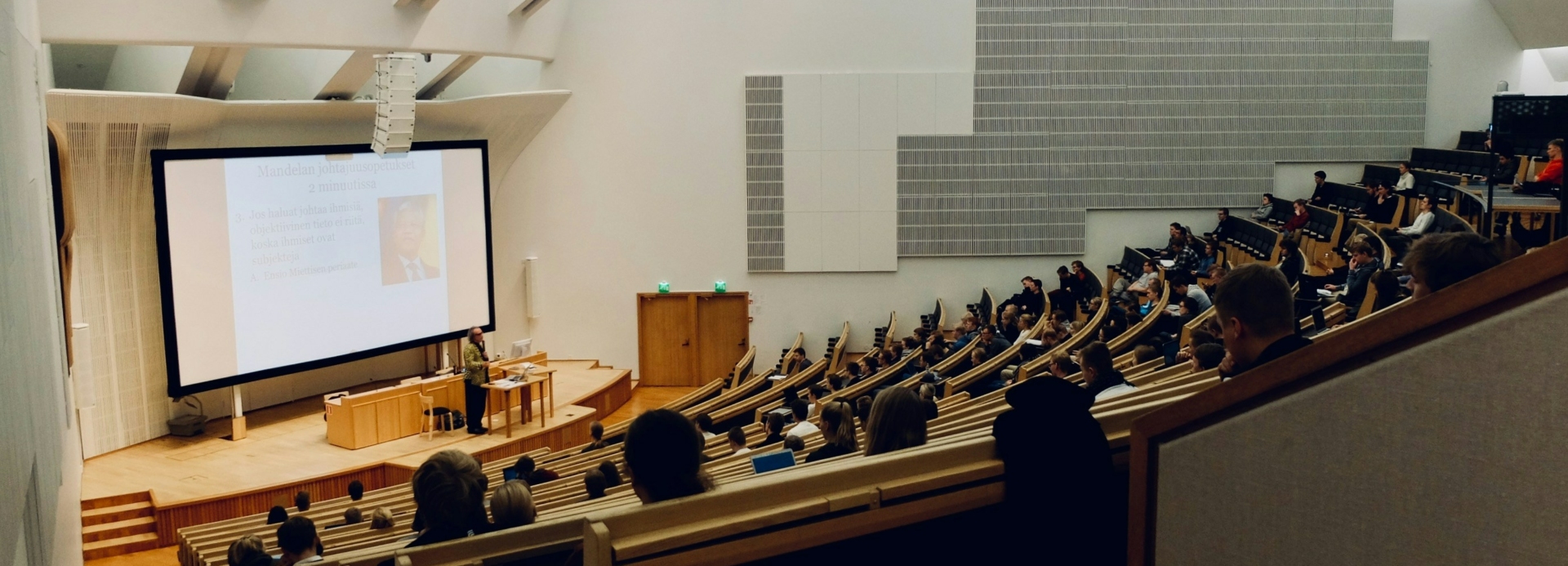At a glance
The University of Central Lancashire wanted to explore the potential of a block learning model (teaching one module at a time as opposed to multiple modules) to broaden its educational reach and enhance student satisfaction. Specifically, they wanted to explore market potential, suitability of subjects to block learning, and the model’s pros and cons. IFF Research were commissioned to conduct interviews with academic leaders, focus groups with students, a competitor analysis and a market sizing exercise. The findings revealed mixed attitudes towards block learning with particular appeal to mature students and those with caring responsibilities.
About the client
The University of Central Lancashire was founded in 1828 as the Institution for the Diffusion of Knowledge. ‘From the Earth to the Sun’, has been its motto ever since – helping people from all walks of life to make the most of their potential is what the university is all about.
Challenges and objectives
The University acknowledged the need to break down conventional educational barriers and wanted to offer more inclusive opportunities through block learning. The university faced challenges in determining the market demand within and beyond their typical recruitment area, the subjects most suited to block learning, and understanding the nuanced benefits and challenges associated with this educational model. The aim was to establish if there was a viable market for block courses, which could influence the strategic direction of the university.

Solution
The University commissioned IFF to use a multi stage approach using qualitative and quantitative methods. Depth interviews with academic leaders familiar with block learning provided insights into the practicalities and student profiles best suited for this model. Focus groups with diverse prospective students revealed their preferences, concerns, and characteristics of those who favoured block learning. The information gathered from these qualitative methods was paired with a competitor analysis of alternative teaching models and market sizing exercises using HESA and ONS data. This insight provided a comprehensive understanding of the potential market and the strategic positioning of the university’s proposed teaching model.

“The University of Central Lancashire has always been focused on ensuring the best outcomes for its students. The University strongly felt that a move towards block learning could better provide students the supportive, flexible learning environment needed to succeed, but recognised that such a shift in approach needed to be underpinned with solid research on market demand, and the potential challenges it could face. ”
Terence Newnham,
Head of Market Insight, University of Central Lancashire
Impact
The research indicated a mixed response to block learning, with particular interest from mature students and those with caring responsibilities. It suggested that the model could potentially enhance student focus, improve life-study balance and allow for flexible learning options. Despite some concerns about the intensity and knowledge retention, the model showed promise in meeting the needs of a specific student demographic. The market sizing exercise, although indicative, suggested sufficient viability for the development of block taught courses, especially in certain regions. The University of Central Lancashire can now strategically consider implementing block learning aligning with the university’s goals to enhance accessibility and adapt to the future of higher education.
“IFF worked closely with myself and senior colleagues on this project, generating valuable insight on the market and our strategic position. Consequently, the University has decided to move forward to a block learning methodology. IFF were a delight to work with throughout, and I look forward to working with them again in the future.”
Terence Newnham,
Head of Market Insight, University of Central Lancashire





